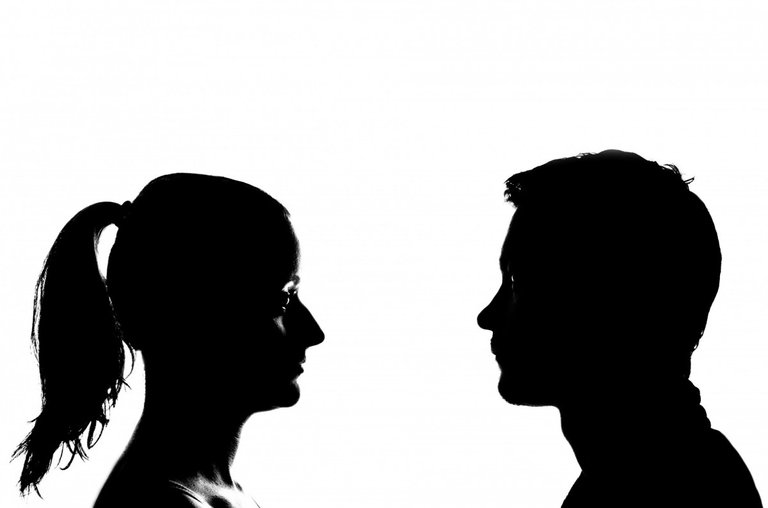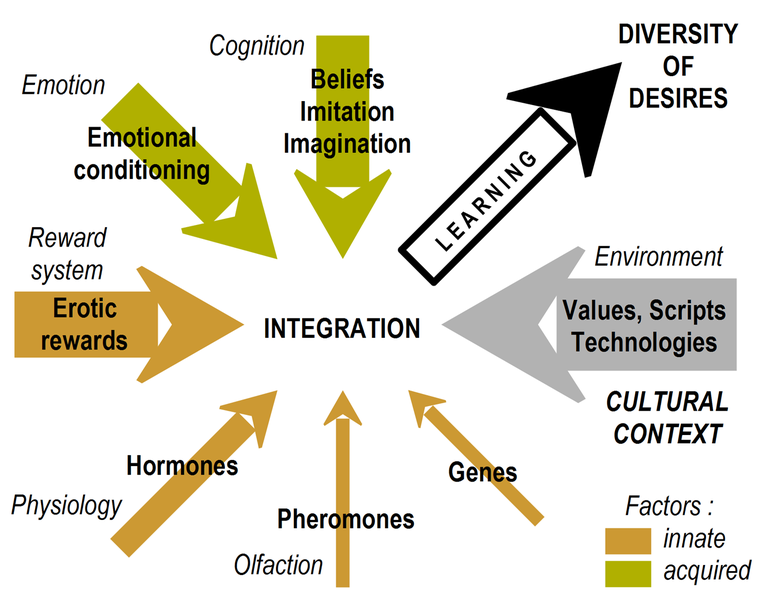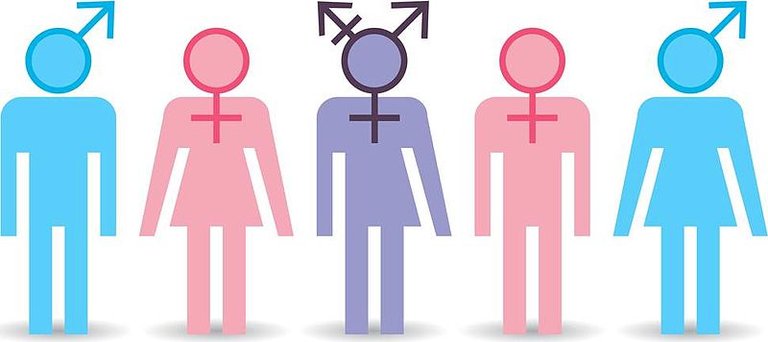
Source Image: Pxhere
Hello, it been a great week am having, after researching on this particular topic that got me excited, so i said to myself i need to write on this. Let go!!!

Hopelessly Unable to Perform
Mark was bright and hardworking but was socially shy and not comfortable around girls. Some year ago, an attractive but obviously inebriated classmate (Laura) had tried to woo him at a school dance, eventually convincing him to accompany her to her car, where they both drank laboriously. Terry had fantasized about Laura for months, but he had never even kissed a girl, and so he had little idea what to do in the backseat of Laura of Laura’s car. He was both excited and terrified. More important, he was distressed by his absence of sexual arousal and was mortified when Laura asked what was wrong. In desperation, he bolted from the car, mumbling an apology, Mark obsessed about the events of that evening for weeks, avoiding contact with Laura.
Finally, Laura approached him and they talked. In the Next few months, they talked often in class, and finally Mark asked her out. It was several dates before he kissed her and more before they started caressing. A while later, Mark and Laura were caressing on the sofa in her living room when Laura propose that they go upstairs, the house was theirs because the parents were not around. As Laura sat on the boundary of the bed, she reached into a drawer and removed a condom. Mark sense the blood discharge from what seemed like his entire body system. Even after half an hour of foreplay, Mark’s penis was unresponsive, Mark did everything she could to excite him but to no avail. As Mark cried down in tears, she lovingly tried to ease him, but for Mark, his world was collapsing.

Trapped in the Wrong Body
It had been a difficult decision, but Henry, age 29, was about to become Henley, It had simply become too painful to continue to live as a male when he felt so certain that he was really a female. For the last 18 months, he had been living as a female. The hormone injections had transformed his body, and two female friends had taught him how to dress as a woman and how to apply makeup.

Source Image: Wikimedia
Pleasure Was Pain
Menae’s idea of sexual pleasure would have terrified most women. She enjoyed being bound, gagged, and physically hurt. It was a craving-a craving that could never be fully satisfied. It drove her to travel hundreds of miles to clubs in distant cities, where like-minded people engaged in such activities. No one from her hometown knew her at these clubs, so her professional career would not be jeopardized. If her schedule did not permit one of these trips, she would use clothespins, needles, and clamps to give herself the intense pain she needed. Her hope was that in one of these clubs she would meet someone-a decent guy who understood and accepted her need for sexual pain. She had lost hope on finding such a person in her hometown. Some of her boyfriends had been willing to try bondage games, but when she had asked them to hurt her, each one had backed off.
Menae traced her interest in masochism back to ‘’Cowboy and Indian’’ games she played as a child. On one occasion, she was captured and tied to a tree. One of the boys briefly fondled her and pinched her arms and legs to ‘’torture information out of her.’’ She found herself shaking violently, scaring her captors into releasing her. Years later she realized that she probably had an orgasm without knowing what it was. Her adolescent sexual fantasies were almost exclusively of bondage and sexual torture, always by a masked man who would come to love her for the pain she endured. She did not really want to be kidnapped and abused; she wanted it to be a game played with someone who loved her. But after years of trying to find that person, she had all but given up.
Mark, Henry, and Menae are all experiencing sexual problems-problems that cause them embarrassment or worse. Mark is suffering from a sexual dysfunction, impairment in either the ability or the desire to function sexually. Henry is experiencing a gender identity disorder, which involves a strong desire to be, or an insistence that one is, the opposite sex, coupled with a persistent discomfort about one’s own sex. Finally, Menae has a paraphilia, a disorder characterized by intense sexually arousing fantasies, urges, or behaviors involving nonhuman objects or the suffering and humiliation of oneself, one’s partner, or nonconsenting individuals. This topic covers these sexual disorders and several others. The topic start with the overview of human sexuality. This is followed by a discussion of sexual dysfunctions, gender identity disorder, and paraphilia’s, the topic ends with a discussion of rape.
HUMAN SEXUALITY
Sexuality is critical to the survival of one’s genes. Sexual intercourse creates the embryo that grows into a human being. Few things in life that brings as much exciting interest in sex. Despite of this intense interest, many people are incredible inexperienced about sexuality, getting much of their information from such unreliable sources as TV and Movies.

Source Image: Wikimedia
This supposition is that sex is natural and therefore it just happens.’’ But it didn’t happen for Mark, the cases happened in this topic. This section in human sexual orientation, the reminder of the topic cover various abbreviations in sexual behavior.

EVOLUTIONARY SIGNIFICANCE
Evolutionary Impact
Many species reproduce sexually. One advantage of sexual reproduction is that it results in offspring that are unique combinations of the genes donated by their parents, and thus increases genetic variability. A second advantage of sexual mating is that the enjoyment associated with sex helps cement a strong pair bond between lovers- a bond strong enough to last for years, providing the partnership that facilitates raising offspring. Because sexuality serves the purpose of passing on genes to the next generation, it has been subjected to the most direct and intense of evolutionary pressures.
The likelihood of one’s genes being passed to the next generation depends entirely on the effectiveness of one’s mating strategies. The optimal strategy for passing on ones genes is different for males and females (Buss, 1994).
For example, human females have considerably more resources inherently tied up in reproduction than do males, and they have more limited reproductive capacity. Each child is fertilized in the female’s body and must be carried for 9 months before another child can be conceived. In contrast, it is theoretically possible for a male to impregnate hundreds of females in that same period.

Source Image: Pexels
Consequently, women need to be selective about the quality of the males who father their children if they want their genes to have the best chance of survival. Historically, a good choice might have been a strong male, because genes for strength increase the likelihood of his offspring’s survival. This may be one of the reasons why men are larger and stronger than women: There is demanding bred for strength by the historical preferences of females for physically strong males. However, the physical immaturity of human infants at birth and their years of youthful vulnerability means that their survival depends on an extended period of nurturance and protection.
Both males and females have a stake in choosing a mate with the temperament to provide this nurturance. Therefore, females prefer males who are strong and powerful and who show a willingness to share their resources. Males prefer females who appear to have the qualities that would make them good mothers-fertility, rigor, and a caring attitude (Buss, 1994).
There is probably good chance that you reacted to the previous paragraph with raised eyebrows, or perhaps even a snigger. Of course, human evolution has taken people well beyond primal drives, as intellectual capacity has afforded people more options for adaptive success.
Buss (1994) found that both males and females prefer mates who are kind and intelligent.
The physically strong male who could successfully defend his family from predators may be less well adapted to the modern world than the smart, hard-working male who can obtain and hold lucrative jobs. Furthermore, women are so longer confined to the home raising children. They are often economic providers for their families. The trend of modern social and technological development far outshines the current pace of evolution. Social norms, which can react more quickly than evolutionary changes, provide people with guidance on acceptable behavior in these rapidly changing times.

Thanks For Reading.
References List:
- Human Sexuality
- Human Sexuality: What Children Need to Know and When They Need to Know It
- Gender Dysphoria
- Sexual Disorders: Dysfunction, Gender Identity, and Paraphilias
Further Reading:
- Zucker, K.J, Green, R. Psychological and familial aspects of gender identity disorder. Child Adolesc Psychiatry Clin N Am. 1993;2:513–542.
- Zucker K.J. Gender identity disorder. In: Wolfe D.A., Mash E.J., editors. Behavioral and emotional disorders in adolescents: nature, assessment, and treatment. New York: Guilford Press; in press.
Thank you for your posting
Yeah.
This disorders are something else.. I haven't heard of most of them.. Feels good to be here.
Your welcome,great that you can learn from this.
Sexual and Identity disorders are such interesting topics. I was in awe when I read your whole blog. It was a great find! You incorporated stories about paraphilia,sexual dysfunction and genter identity disorder in a completely different level. 🌸
Am blushed, thanks a million.
sorry but the diagnostic manuals mental disorders, sexual preferences have been removed and "gender dysphoria" as pathologies, because of the cultural change that society itself has been forced to ease their cognitive distortions. When you talk about "sex" This word is very ambiguous when referring to sexuality and gender, there is a universe inside, I'll explain it another way, if you say sex: anyone can think that you mean the gender (male or female) but , also to sexual exercise (to have intimacy). Psychology is a very sensitive issue to make assertions especially when we do not look for specialized sources. In fact if you notice your sources are from 93, when we made informative articles we should consider sources with data no more than 5 years old because many contributions are no longer valid (especially when we are not specialists), there is a book from the Mediterranean publishing house that is called about homosexuality and they carry out a review of more than 250 specialists, both neurologists, immunologists, pediatricians, sociologists, psychologists, historians and more. This book begins with the right concepts to understand that it is a sexual preference with these: identity of gender, nuclear identity. On the other hand, considering adolescence as a stage to generalize parameters is not ideal either, because up to the age of 21, individuals have not fully developed the personality bases, from there until age 21, "homosexual" behaviors are part of of the discovery of his personality. My apologies for the suggestions but I am a specialist in the area and it has been a lot of times to educate about this topic